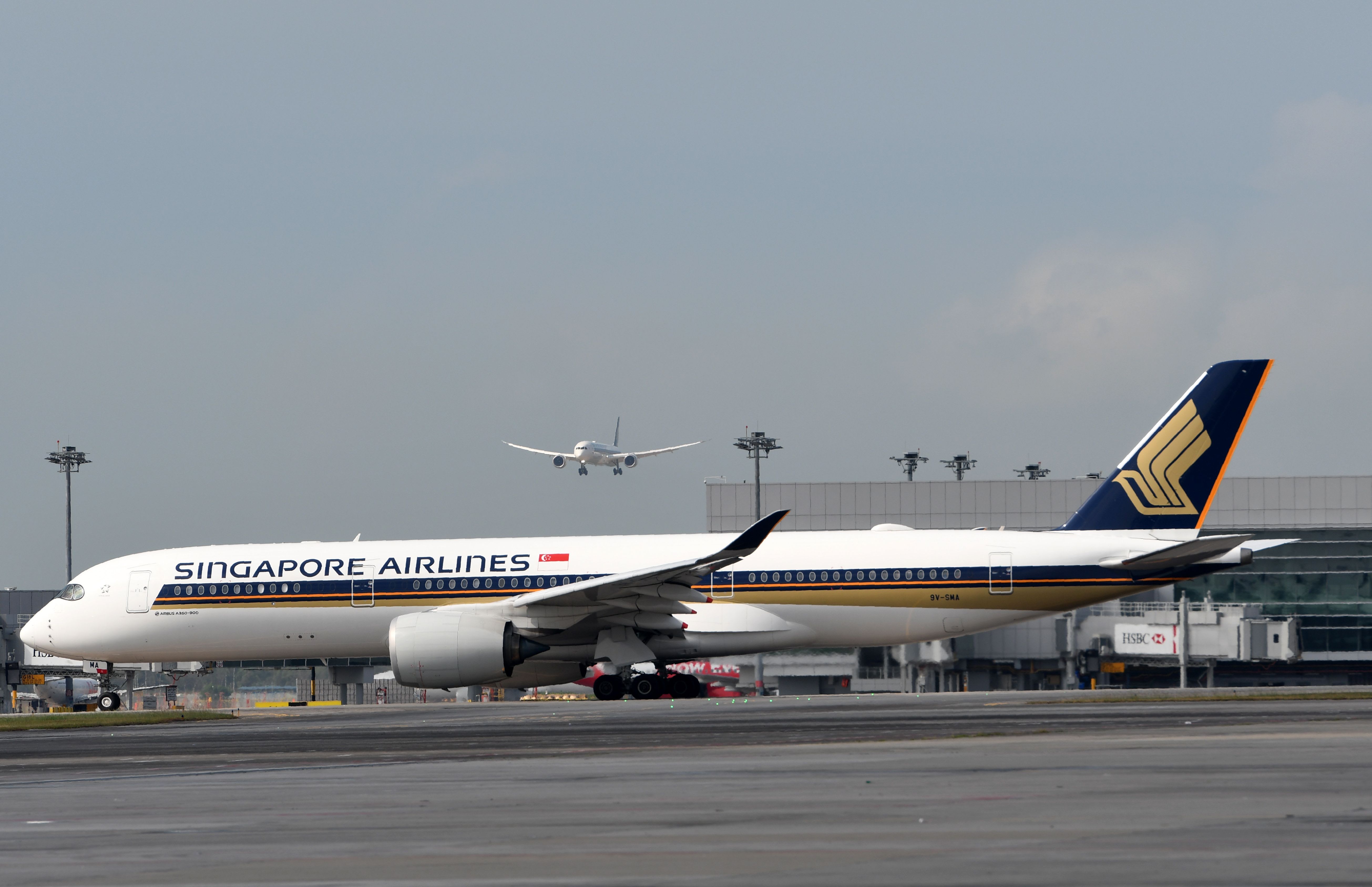
Singapore Airlines (SIA) welcomes the world’s first Boeing 787-10 aircraft (in the air) as it approaches after its flight from Boeing’s production facility in North Charleston, South Carolina at Singapore Changi Airport on March 28, 2018.
ROSLAN RAHMAN | AFP | Getty Images
As air carriers worldwide are caught in a “race against time” while trying to stay afloat as global travel is nearly completely wiped out, Singapore Airlines appears to be better positioned than its peers, according to one analyst.
“Everyone … is battling this,” Brendan Sobie, an independent analyst at Sobie Aviation, told CNBC’s “Squawk Box” on Thursday.
Comparatively, Singapore Airlines “is in a better position,” he said, citing the Singapore flag carrier’s liquidity position, which in his opinion was better than “virtually anyone in the global airline industry.”
“What that means is they can survive a prolonged downturn, come out of hibernation very strong in a few years and potentially take advantage of consolidation,” Sobie said.
Singapore Airlines on Wednesday reported a net loss of 1.123 billion Singapore dollars (about $816.22 million) in the first quarter. The airline said market conditions were “deteriorating rapidly” due to the global spread of Covid-19.
The airline announced last week it had raised approximately 11 billion Singapore dollars, or about $7.994 billion, through a combination of vehicles such as rights issue and secured financing.
Asked if SIA will need to return to the market soon to secure more funds as it seeks to tide through this period, Sobie said the 11 billion Singapore dollars raised would be “sufficient for some time” and could last more than a year.
“The other thing to keep in mind is … they have an additional 6 billion (Singapore dollars) that they can raise through mandatory convertible bonds … which they announced already as part of their liquidity measures,” he added.
Sobie’s view was echoed by Nomura analysts, who said in a July 29 note that Singapore Airlines’ recent rights issue has “strengthened” the carrier’s balance sheet.
“The company’s liquidity position seems manageable as it supplements the rights/mandatory convertible bonds (MCB) with secured funding,” they said. Still, they acknowledged that “a big question mark” remains over when countries will open their borders for international flights again, given the recent spurt in Covid-19 cases globally.
“Out of 220 aircraft in the group’s fleet, 148 are currently parked, 32 aircraft are deployed on passenger routes, 7 freighters are operational and 33 passenger aircraft have also been deployed on cargo-only services,” Nomura said.
Looking ahead, Sobie said SIA is set to become “much smaller for the next few years” and is expected to take a “very long time” to recover fully to its normal size.
“This fiscal year, which still has another three quarters to go … is gonna be even worse than expected a few months ago,” Sobie said. “They’re gonna have to right-size for this year as well as for next year which will still be significantly down.”
Source: CNBC
